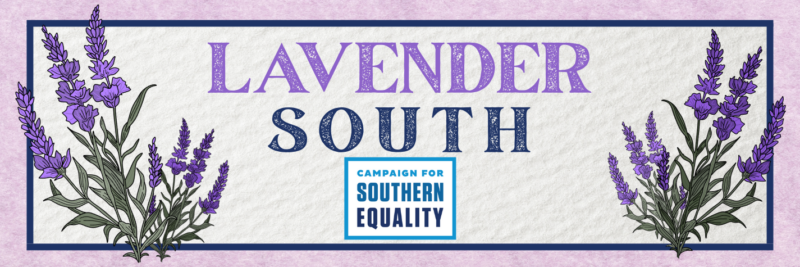
Content Warning: Discussion of suicide
There are moments when everything stops. Like a freeze frame in a movie, time fractures, suspended between past and future. That’s how it felt last October when I received the worst email of my career.
I taught class like normal that day at Middle Tennessee State University. Well, mostly. I’d woken with a sharp shoulder pain, and the gray sky mirrored my mood. The class felt off, too. The most engaged student was absent for the first time. Usually, she sat in the center, brightening the room with her enthusiastic participation and fire-engine red hair. I asked the class if they had “the Mondays” too. Several nodded.
Feeling uninspired, I canceled office hours and headed home. At 5:37 pm, the messages started. A former student texted: “Did they release the student’s name yet?” A text like this had only one meaning. I googled “MTSU student death” and found the news: a student had died by suicide that afternoon. They had jumped from the library’s fourth floor. My heart plummeted, a sensation like falling.
I opened my work email. A message from my Department Chair: “Student Death.” Inside, I read, “one of our majors.” Moving down the hall in what felt like slow motion, I repeated “no, no, no” with each step. The next message contained her name: Serenity Birdsong. The student with the bright red hair, a transgender woman, had killed herself during our class period. Time stopped. I opened the door to where my partner was, spoke words that didn’t feel real. He jumped up, and I collapsed, crying on the hallway floor.
This wasn’t my first time experiencing queer suicide. My father, Clyde Chevrette, a bisexual man in a world that refused him space, died by suicide in 1992. I was eleven. In 2021, my PhD advisor, Dan Brouwer, a gay man and queer scholar who shaped my life, ended his own. Now, Serenity.
I’d known her for only two months but already felt connected. We’d had several one-on-ones about politics and being queer in Tennessee. Weeks before her death, we ran into each other at Boro Pride. I was repping my department; she was there as president of an LGBTQ+ student organization. We showed off our collected swag and I gave her a card for a local trans aid group. Earlier that semester, she had emailed trusted professors about the financial struggles she and her girlfriend were having after her family cut her off. I offered words of support and information about resources. One of my colleagues even gifted her an old car.
From the hallway floor, I now called my colleague. I could hear her audibly breathing, in, out, in out, as I struggled for air amidst shaking sobs. When we hung up, I called the student who had texted.
That night was sleepless and the next day, a blur. On Wednesday, I made it to school where counselors were coming to my class. Driving onto campus, I saw a student laughing on her phone. Anger filled me. How dare she smile on a day like this? Then guilt: How could I complain about my fucking shoulder pain while Serenity was ending her life? Why couldn’t I stop her? Stop them? My queer colleague attended class with me to help me get through it. I worried my grief would make things worse for the students, but I wanted to be there with them.
That night, a candlelight vigil was held on campus. Thousands of students, faculty, and staff gathered and mourned Serenity’s death. Another queer coworker handed me a trans flag to wave. I moved to the front. See me. See us. Afterward, I slept through the night for the first time. Grieving in community felt healing, even if imperfect.
But when it comes to queer death, institutions avoid saying too much. As if acknowledging the queer person’s identity or the pain felt by LGBTQ+ survivors would be to admit complicity. Even worse, the family who had disowned Serenity in life now wanted the university and press to use her dead name in death. They likely would prefer her suicide not be spoken of at all. But silence around queer suicide is not just a failure of empathy; it is a political failure. It was a political failure in 1992 when my dad took his life after being diagnosed with HIV/AIDS, and my family sought to keep his illness a secret. It was a political failure in 2021 when some faculty in my advisor’s department fought to suppress criticisms of the university for not valuing his queer labor. And it was a failure in 2024 when, despite the support the administration showed, not one official message could muster the words, “We support our LGBTQ+ students, faculty, and staff.”
Silences about queer suicide are the product of laws stripping away LGBTQ+ dignity, of narratives telling queer and trans people we are deviant and unnatural, of churches that call LGBTQ+ sexuality a sin, of schools where support is uneven or falls short due to political constraints, and of families who turn away from or keep their queer kin a secret.
I moved our class to a new location, away from the room where Serenity’s absence was now glaring. We made it through the semester, and time moves forward. But part of me doesn’t. Part of me is still lying on the hallway floor sobbing. Sitting in the chair where I got the call about my advisor. Waiting for my Dad on the front porch of my childhood home. That’s how grief works. And that’s how queer grief lingers, intertwining with rage against the world that makes it so.
Serenity was not just a student; she was a young woman living in a place where survival is an act of resistance.
In grieving, we resist. We remember. And we fight for queer futures that will not be stopped short.
Resources:
- Trans Lifeline: 877-565-8860
- National Suicide Prevention Lifeline: 988

